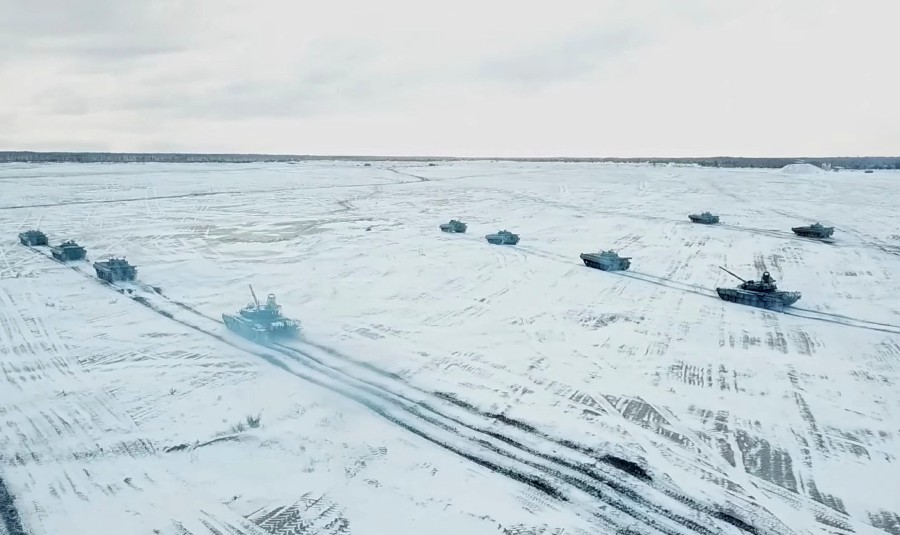A week ago, war was imminent. The United States was pushing the notion of an invasion of Ukraine by Russia. The Russians adamantly denied this allegation.
While Russia was indeed lining up 100,000 of its troops along its border with Ukraine, it argues that it is her right to do what it wishes within its borders.
And, on that reality, the West was insistent on a threat of invasion of Ukraine, whose security the US had decided to personalise after the colour revolution it instigated in 2014.
Russia was protesting the possible entry of Ukraine into the North Atlantic Treaty Organisation (Nato).
Ukraine was part of the Union Of Soviet Socialist Republics (USSR), or the Soviet Union, which is now Russia, and there is a substantial shared boundary between Ukraine and Russia, and, if it were part of Nato, a military organisation.
It would mean the presence of advanced military hardware on its soil, including nuclear weapons, as is present in Romania, for example. The inference is obvious.
Russian security becomes vulnerable as nuclear warheads are only minutes from Russian cities. Russia is demanding that Ukraine and Georgia (another former USSR province with a common border with Russia) will not be part of Nato.
Of course, Washington's design is to include both these states into Nato, thus increasing Russia's vulnerability. Hence, the head-on verbal confrontation between Russia and the US.
Russia's red line was drawn deep and clear and its protestations were worded bluntly. If no guarantees were given, Russia will take stern counter measures to protect its security.
And it is important to bear in mind that Russia leads the world in military prowess, which is further strengthened by its strategic relations with China, the world's second largest economy with growing military strength.
And then the written reply to the Russian demands manifests itself and Washington, in refusing to give a definitive reply, resorted to positioning the US as part of Nato and the decisions cannot but be taken by all member states of the organisation.
A fact of no unanimity was made public by Germany and Spain. Additionally, Volodymyr Zelenskyy, the Ukrainian president, urged Joe Biden, the American president, to tone down his invasion narrative.
Ukraine was suffering the economic impact. And so, the widely broadcast threat of war between Nato and Russia was averted, a war that could easily morph into World War 3, which is expected to end humanity.
The run-up to last weekend was full of the American narrative of war and Nato's role in what would be a confrontation between the world's leading nuclear powers.
Unless the US has perfected her mini-nuclear bombs, one conventional nuclear bomb on Russia duly responded to by Moscow to either Europe or the US will have spelt the end for humankind immediately and, after some time, a global nuclear winter ending all life forms.
It is this stark future of no escape from the predicted mutual destruction that must surely keep many minds sane.
When the Western narrative spoke of war despite Russian protestations of peace, the average observer cannot but see the situation as ranging on the edge of madness.
The West was urging war, while Moscow, though insisting on peace, cannot but take a stand against a narrative that was being spun to destroy her. In which even Moscow declared that Russia will do all in her power to preserve her sovereignty.
And many months ago President Vladimir Putin has made his position clear. Russia will not allow the survival of others if Russia's end is planned. But, why is the US so insistent on war?
Not with a non-entity, but with a country built to withstand her assault, where the demise of humanity is a certainty.
One possible reason is the US's economic position, which many experts are saying is on the verge of destruction. Some are even saying that the pandemic is intended to cover the very real economic collapse that is imminent.
The Federal Reserve has been aggressively quantitative easing, printing enormous amounts of money that have begun to sip into the real economy and currently kicking off inflationary pressures.
What is undeniable is that Washington cannot ride roughshod over others. Much of the world have no desire for wars and a possible slip into the absolute end.
The author is former NST Leader Writer



